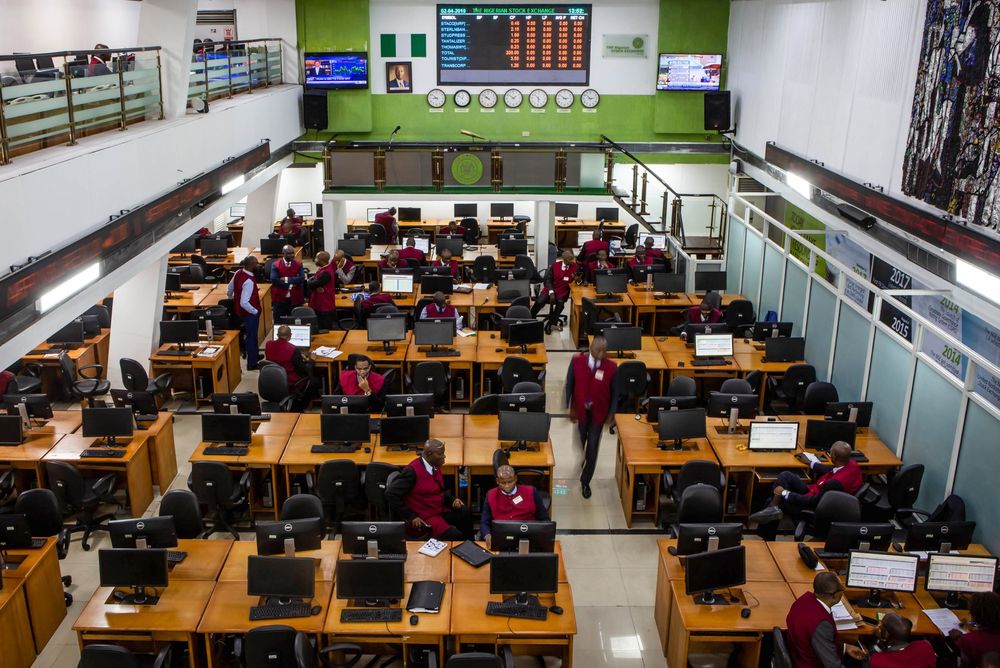After enduring a prolonged period of bearish trading, the Nigerian Exchange has finally witnessed a slight uptick, bringing a glimmer of hope to investors.
The modest increase of 0.05% in the All-Share Index signals a potential reversal of the recent downward trend with investors collectively gaining N26 billion in market value.
In recent days, the local bourse has been grappling with a bearish run, characterized by sell-offs and waning investor interest. Major indexes had faltered, dipping below milestones achieved earlier in the year.
However, Thursday’s trading session brought a much-needed reprieve as the market saw a marginal increase, instilling cautious optimism among market participants.
At the close of trading on Thursday, the All-Share Index edged up by 48 basis points, settling at 98,169.30 points.
Similarly, the market capitalization appreciated by 0.05%, reaching N55.52 trillion. While the increase may seem modest, it marks a significant shift from the downward trajectory that had persisted in previous sessions.
The market movers for the day included stocks of Zenith Bank Plc, Access Holdings, and Transcorp, which contributed to the gains observed.
Transcorp Hotels, Livestock, Tantalizer Plc, Sunu Assurance, and WAPIC led the pack with notable share price increases ranging from 6.15% to 9.75%.
Despite the overall uptrend, the exchange recorded more losers than gainers, reflecting subdued trading activity. Total deals, volume, and value experienced declines, indicating lingering caution among investors.
Sectoral performance was mixed, with the banking and consumer goods indexes witnessing declines, while the insurance index posted gains.
The announcement of corporate earnings and the proposed banking sector recapitalization exercise failed to significantly reignite interest in the market.
While these developments may have influenced investor sentiment to some extent, broader economic factors and global market conditions continue to shape investor behavior.
Zenith Bank emerged as the most traded security by volume and value, further underlining its significance in the market.
With 48.49 million units valued at N1.77 billion exchanged in 577 deals, Zenith Bank remains a key player in driving trading activity on the exchange.
As the market navigates through uncertainties and volatility, investors remain cautiously optimistic about future prospects.
While the recent uptick offers a glimmer of hope, market participants are keenly observing developments and adjusting their strategies accordingly, cognizant of the dynamic nature of the financial markets.




 Forex3 weeks ago
Forex3 weeks ago


 Naira3 weeks ago
Naira3 weeks ago
 Billionaire Watch3 weeks ago
Billionaire Watch3 weeks ago






 Naira3 weeks ago
Naira3 weeks ago






 Naira2 weeks ago
Naira2 weeks ago




 Naira2 weeks ago
Naira2 weeks ago






 Naira1 week ago
Naira1 week ago




 Naira4 weeks ago
Naira4 weeks ago











